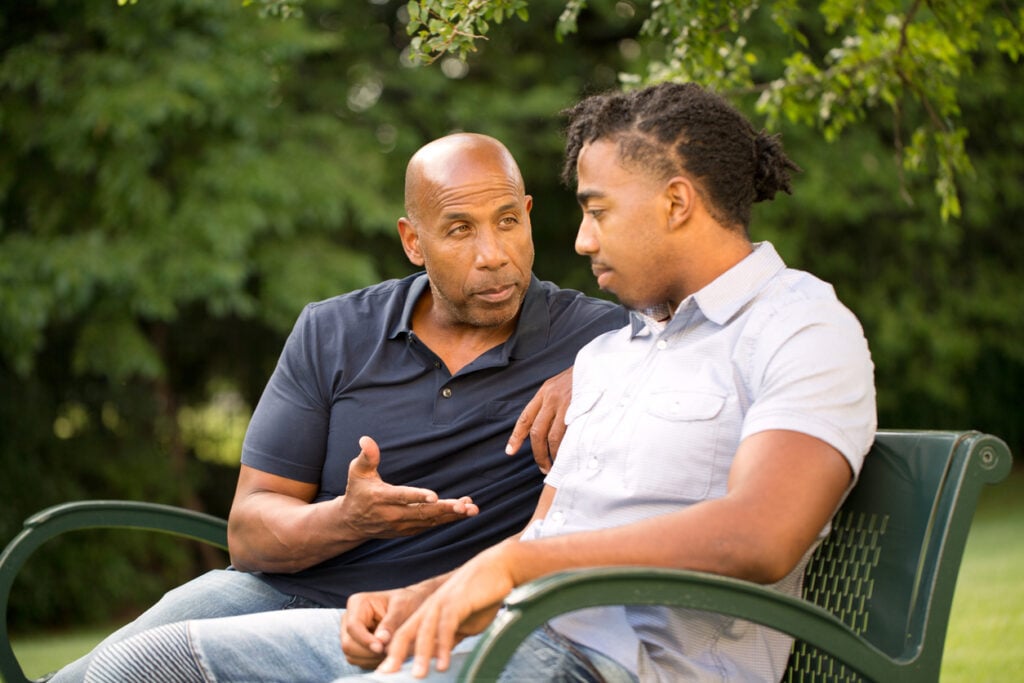Kind yet assertive responses to protect yourself while keeping the peace with your adult child.

Ever feel like you’re constantly tiptoeing around your adult child, unsure of what might set off another emotionally charged exchange? You’re definitely not alone. Many parents find themselves in that uncomfortable space—trying to support and stay connected to their grown children, while also preserving their own emotional well-being. But the truth is, you shouldn’t have to sacrifice your peace or silence your own voice just to keep things from boiling over.
Learning to communicate with empathy and clarity can make all the difference. With the right language, you can express your needs and maintain your boundaries without sparking defensiveness or triggering a full-blown argument. These kind yet firm responses are tools to help you advocate for yourself while still preserving the relationship and keeping the conversation grounded in mutual respect.
1. “I hear you, but I need you to hear me too.”

This phrase sets the tone for a two-way dialogue rather than a one-sided lecture. It sends the message that while you’re fully listening and open to understanding where they’re coming from, your feelings deserve equal airtime. It gently nudges them toward mutual respect without turning up the emotional volume.
Often, we’re so focused on keeping the peace that we forget our own voice matters, as mentioned by Dr. Jeffrey Bernstein at Psychology Today. By stating this clearly, you maintain balance in the conversation. It’s not about winning or controlling the outcome—it’s about ensuring both sides feel heard and valued. That alone can create more openness and less defensiveness.
2. “I understand where you’re coming from, but here’s how I see it.”

When tensions rise, acknowledging their point of view first helps soften the emotional landscape. It tells your child you’re not dismissing them or shutting them down—you’re actively working to stay connected and thoughtful in your response.
Then, by calmly offering your perspective, you gently assert your own truth. This approach creates room for shared understanding and mutual growth, according to Rebecca Joy Stanborough at Helpline. Instead of locking into opposition, it invites conversation that can deepen your relationship, even in disagreement.
3. “I appreciate what you’re saying, but I need some space to think about it.”

Sometimes the best way to avoid conflict is to pause. When emotions run high, this phrase gives you time to breathe and reflect without making the other person feel rejected. It validates their concerns while also protecting your mental space.
Taking a step back can be an act of love—for both of you. It allows you to process your emotions and come back to the conversation grounded and calm, rather than reactive, as stated by Cyn Meyer at Second Wind Movement. That alone can prevent unnecessary damage to the relationship.
4. “Let’s agree to disagree on this one.”

This response can be a powerful act of emotional maturity. Not every discussion needs to end in a shared viewpoint, and that’s okay. Agreeing to disagree shows that you’re more interested in preserving the relationship than being “right.”
It allows you both to maintain your dignity and your beliefs without needing to convince or change one another. It’s a respectful way of saying, “We’re different, and I still care.” And sometimes, that’s the most peaceful outcome you can hope for.
5. “I’m not trying to argue; I just want to explain how I feel.”

This line can instantly de-escalate a heated exchange. It clarifies your intention—to share, not to confront—and creates a softer opening for your child to listen without feeling threatened.
People often shut down when they think they’re being attacked. By focusing on your own feelings rather than their behavior, you shift the dynamic toward understanding instead of blame. That little shift in tone can change everything about how the message is received.
6. “Can we talk about this later when we’re both feeling calmer?”

Timing can be everything when emotions are flaring. This phrase allows you to acknowledge the importance of the conversation without forcing it during a volatile moment. It’s a respectful pause, not a shutdown.
Waiting until both parties are calmer helps ensure the conversation is productive, not explosive. It shows that you care enough to want the discussion to go well—and that you’re prioritizing connection over control or urgency.
7. “I’m feeling overwhelmed right now. Can we take a break?”

Giving yourself permission to step away from a difficult interaction is a form of self-respect. This phrase gives voice to your emotional limits without placing blame or escalating the situation.
It invites a moment of reflection, rather than reaction. Letting your adult child know you need space models emotional regulation, and it often encourages them to mirror that maturity. Everyone benefits from a breath before diving back in.
8. “I respect your opinion, but this is how I feel about it.”

Respecting someone’s viewpoint doesn’t mean you have to agree with it. This phrase lets your child know you see their perspective as valid, while still holding firm to your own emotional truth.
It reminds both of you that disagreement doesn’t have to mean disrespect. Your feelings are real and worthy, and standing up for them in a composed way fosters healthier, more balanced communication going forward.
9. “Let’s focus on finding a solution, not blaming each other.”

When conversations start circling blame, very little progress gets made. This phrase redirects the energy toward something more constructive—solving the issue together rather than tearing each other apart.
By steering the focus to collaboration, you position yourself as an ally, not an adversary. That simple reframing can lower defensiveness and set the stage for more honest and healing dialogue.
10. “I don’t want to fight, but I do want to clear the air.”

Sometimes things need to be said, even if they’re hard. This phrase gives you permission to address a lingering issue while keeping your intentions clear—you’re not there to attack, just to be honest and transparent.
It opens the door to resolution without setting off alarm bells. You’re acknowledging the emotional charge but also expressing your desire for peace and clarity. That can ease tension and invite a more thoughtful conversation.
11. “I love you, but I need to stand up for myself on this.”

This is a powerful blend of affection and assertiveness. It reminds your child that your love is steady and unconditional—but that love doesn’t mean losing yourself in the process.
You’re showing that boundaries and care can coexist. Standing up for yourself in a kind and loving way is not only possible—it’s essential for long-term mutual respect and emotional safety in your relationship.
12. “I respect your perspective, but this is a decision I need to make for myself.”

Sometimes, the most important choices are deeply personal. This phrase helps you draw a clear line between empathy and autonomy—it says, “I value your input, but the final call is mine.”
It’s a graceful way to assert independence without creating a wedge. You’re showing your adult child that you can both be connected and separate, loving and self-determined. And that’s a lesson worth modeling.
